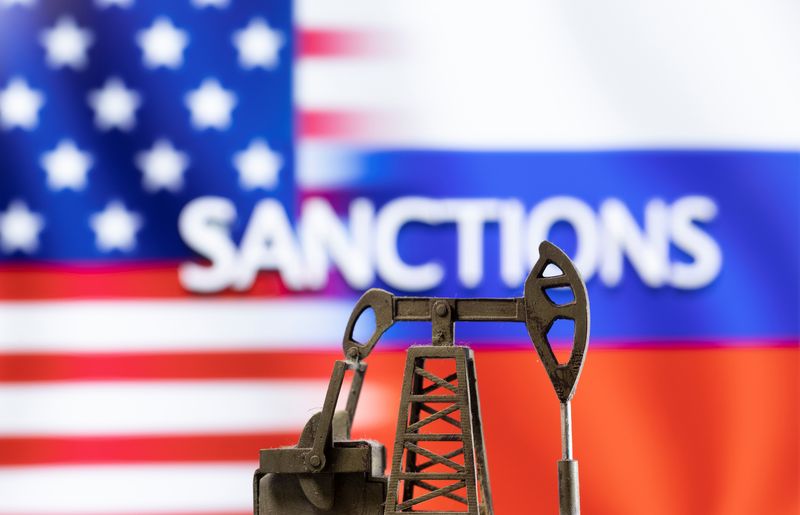(Reuters) – The U.S. Treasury Department has sent notices to ship management companies requesting information about 100 vessels it suspects of violating Western sanctions on Russian oil, according to a source who has seen the documents.
The notices, sent by the Office of Foreign Assets Control to ship management companies in about 30 countries on Friday, represent the biggest step of its kind by the United States since Washington and its allies imposed a price cap aimed at restricting oil revenues to Moscow as punishment for its invasion of Ukraine, the source said.
The Treasury Department would not comment on the reporting. “While we do not confirm or comment on investigations or enforcement actions, Treasury is committed to enforcing the price cap and reducing Russia’s resources for its war against Ukraine,” a Treasury spokesperson said.
The Group of Seven rich countries, the European Union and Australia imposed a $60 per barrel cap last December on sea-borne exports of Russian crude. It bans Western companies from providing services such as transportation, insurance and financing for the oil sold above the cap.
A rally in global oil prices this year has meant much of Russian oil has traded above the cap. But U.S. officials have said the cap has still imposed extra costs on Russia by forcing it to rely on a “ghost fleet” of aging tankers, longer voyages and non-Western maritime services that have cut into the revenues it can spend on the war.
The U.S. last month also imposed sanctions on owners of two tankers that had carried Russian oil priced above the cap, the first significant enforcement of the measure.
The source with knowledge of the new notices said some of the vessels now under investigation were involved in lifting Russian oil from the Pacific port of Kozmino, while others had loaded at the port of Primorsk on the Gulf of Finland.
The U.S. Treasury had published a warning to U.S. companies in April of possible evasions of the Russian petroleum price cap of crude oil exported through the Eastern Siberia Pacific Ocean pipeline and ports in eastern Russia.
The source with knowledge of the notices said one of the companies that had received a request for information was Beks Shipping, based in Turkey. Reuters was unable to immediately reach Beks by phone for comment. The source did not identify any other companies.
Requests for information are a routine step in sanctions investigations, the source said, and are designed to gather details like information on the companies that chartered certain vessels and/or purchased the oil they carried.
The price cap has caused a shift in global markets as China and India purchase Russian oil, often at a discount. Much of that oil had traditionally gone to Europe and other markets.



